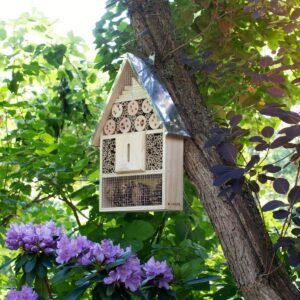The Importance of Pollinators and Their Habitats
Pollinators, primarily bees, play an indispensable role in maintaining the health of ecosystems and supporting plant biodiversity. They facilitate the reproduction of approximately 75% of flowering plants and a significant proportion of crops, which provides the foundation for food production. Pollination not only contributes to the yield of fruits and vegetables but also sustains the broader environment by promoting genetic diversity among plant species. This diversity is vital for ecosystem resilience, helping plants adapt to changing environmental conditions.
Unfortunately, alarming trends indicate a decline in pollinator populations due to several factors, including habitat destruction, pesticide use, and climate change. This decline poses a serious threat to global food security and the stability of natural habitats. Studies show that the reduction in pollinator numbers directly correlates with decreased crop production and an increase in plant extinction rates. Thus, protecting and enhancing pollinator habitats is essential for ensuring the continued health of ecosystems and agricultural systems alike.
An important yet often overlooked group within the pollinator community is solitary bees, which include species such as mason bees and leafcutter bees. Unlike honeybees, solitary bees do not live in colonies; instead, they create individual nests, often in small crevices or natural materials. Providing nesting habitats, such as bee hotels, can serve as safe havens for these pollinators. The strategic design of these habitats can help facilitate reproduction by offering breeding spaces and protection from predators.
Moreover, the choice of materials for constructing these habitats is crucial for their sustainability. Bamboo, as an eco-friendly resource, is an excellent option due to its rapid growth and renewable nature. Crafting bee hotels from bamboo not only supports local ecosystems but also reduces reliance on non-sustainable materials. By establishing pollinator-friendly environments using sustainable practices, we can contribute positively to the complex web of life that sustains all living organisms.
DIY Guide to Building Bee Hotels with Bamboo Craft Tubes
Creating a bee hotel using bamboo craft tubes is an excellent way to support local solitary bee populations. To begin, gather the necessary materials which include 100 count, 5-inch bamboo craft tubes, a sturdy base (like a wooden board or an old wooden crate), a drill, and outdoor wood screws. Optional eco-friendly items such as plant stems, dried leaves, or natural fibers can be included to enhance the hotel and attract a wider variety of pollinators.
Begin by arranging the bamboo tubes horizontally, ensuring they are snug but not overly compacted. Holes should be a diameter that accommodates the specific solitary bees you wish to attract, ideally between 3mm to 10mm in width. Secure the tubes to the sturdy base using wood screws, ensuring they are stable and able to withstand outdoor conditions. This arrangement not only provides shelter but also encourages bees to establish themselves within the tubes, acting as natural solitary bee hives.
Once the structure is assembled, consider the placement of your bee hotel. An optimal location is a sunny area, ideally facing south or southeast, as this positioning maximizes warmth exposure. Install the hotel at least three feet off the ground to protect it from predators and water accumulation. Additionally, creating a pollinator-friendly garden environment with native plants nearby will provide forage opportunities, further attracting bees to your hotel.
Maintenance of your bee hotel is essential for its effectiveness. Regularly check for cleanliness and replace any damaged tubes. After the bee season, clean out the tubes to prevent diseases; however, refrain from overwashing, as some bees prefer to overwinter in existing habitats. Ultimately, creating and maintaining a bamboo craft tube bee hotel not only supports solitary bees but also fosters a thriving habitat for other beneficial pollinators in the ecosystem.
Discover more from Bee Newz
Subscribe to get the latest posts sent to your email.








Reviews
There are no reviews yet.